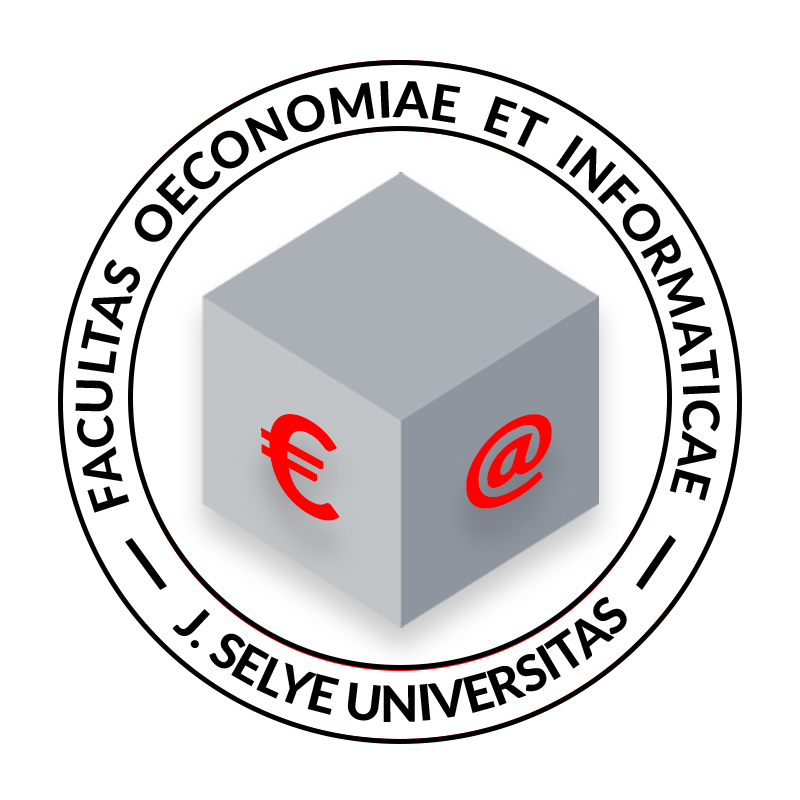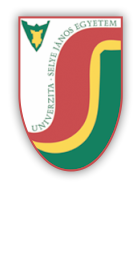Ethical Guideline for Authors, Editors and Reviewers
Publication of scientific papers is one of the most important ways to serve the scientific community. Certain responsibilities are addressed to editorial board members, authors, editors and reviewers in order to maintain high ethical standards regarding the publications of manuscripts in the journal we publish.
In cases of violating this policy – or appears to be violated – we will follow and act accordingly the Code of Conduct and Best Practice Guidelines of the Committee on Publication Ethics (COPE) (more details: https://publicationethics.org/resources).
Authors
- By submitting the paper the authors confirm that it is their original work. If the authors used the work and/or the words of others, they were cited appropriately.
- Authors are not allowed to submit their manuscript for consideration, when it is subject to assessment in another journal.
- Authors must ensure that data have been collected ethically.
- Any conflict of interest or the appearance of a conflict of interest must be disclosed.
- Significant changes to the manuscript must not be made without informing the Editorial Board. A significant change include new content, new data, or change in the list of the authors.
- Individuals, who did not make a significant intellectual contribution, should not be listed as authors. Contributors whose contribution is not significant enough for authorship (e.g. language consultation, data collection etc.) may be acknowledged in the Author’s comments, mentioning their role in the publication.
- All those who have made significant contributions should be listed as co-authors. The corresponding author must ensure that all the co-authors have seen and approved the final version of the paper and agreed to the terms and conditions of publication.
- Authors should provide sources that have significantly influenced their research and manuscript. Parts of the manuscript, including text, equations, pictures and tables taken from other works, must be clearly marked, e.g. quotation marks together with their placement in the original document (page number).
- Authors must report any errors discovered in their manuscript to the editor immediately. When a significant error or inaccuracy is discovered by the author in their own published work, it is their obligation to immediately notify the Editor (or publisher) and cooperate with him/her to withdraw or correct the paper.
- Authors are aware that the publication will remain archived, citable and accessible.
- In case of positive assessment of the Contribution, the author confirms by signing that the contribution is his/her own work and has not infringed the rights of the third party. By signing, he/she confirms the publication of this Contribution and the distribution of printed copies, the distribution of electronic copies for all electronic media and formats (publication on the official website of the Journal, any electronic printing service and electronic database or repository).
- By submitting a manuscript, the authors agree to abide by the Editorial Policies of the Acta Oeconomica Universitatis Selye.
Reviewers
- Manuscripts should be accepted by the reviewer which fall into his/her area of expertise. This is to maintain a high standard of the review process.
- Reviews should be accurate, substantive and objective. They should communicate the assessment of the submission on the basis of their merits and their contribution to the scientific literature.
- Reviews should include documentable and specific information on the strengths and weaknesses of the submission.
- Reviewers should provide suggestions on how to make the manuscript more relevant, readable and complete.
- The information obtained from the evaluation of the manuscript is confidential.
- A recommendation to the editor is provided by the reviewer for the disposition of the manuscript, categorizing it into one of 4 groups:
- Accept without modification
- Accept with minor modification (manuscript requires modifications to improve its quality)
- Major modifications required (manuscript requires extensive revision prior to potential acceptance)
- Reject (low quality or low interest to the readership)
- Authors must be treated with respect by the reviewers. In case of a conflict of interest manuscripts will not be reviewed. Conflicts of interest between authors and reviewers may result from earlier mutual cooperation or other relationship.
- The Editor, or the Editorial Board have to be informed about any conflicting piece of information that may result in the rejection of publishing the manuscript.
- Confidentiality of the review process must be maintained by the reviewers. No information from the reviewed manuscript can be disclosed to the public. The reviewers are not allowed to show or discuss the contents of the manuscript with other experts except with those authorized by the editor.
- Reviews must be elaborated within 14 days. Failure to do so will result in a reviewer receiving a reminder email.
Editors
- The Editorial Board is in charge of providing guidelines to authors as to how to elaborate and how to submit their manuscripts.
- Objectivity, equal treatment, courtesy and transparency must be maintained by the Editorial Board throughout the whole review process.
- The Editorial Board is in charge of maintaining an objective reviewing process. Reviewing must be solely based on the paper’s scientific qualities.
- The Editorial Board makes editorial decisions and also communicates them in a concise, clear and transparent manner.
- The authors of papers published in Acta Oeconomica Universitatis Selye have the right to request clarification, correction, publishing apology or retraction. The editor is advised to support authors’ such decisions; nevertheless, he/she may ask for additional explanation from the author before publication and/or retraction.
- The Editorial Board obliges to maintain an efficient system for the peer review process (double-blind review).
- The details of the double-blind review process will be explained both to the author(s) and reviewers by the editors. The reviewers will be informed about the rules of the reviewing process by the Board.
- Editors are also in charge of making sure, by using proper tools, that neither authors nor reviewers are able to find out about each other’s identity.
- If an author, a reader or a reviewer files a complaint, the editors shall follow the procedures set by the Committee on Publication Ethics (COPE).
- Any conflicts of interest must be disclosed by the Editorial Board. The Board are in charge of elaborating and defining policies on how conflicts of interests shall be dealt with in case of each party involved in the publication process.
- All conflicts of interests shall be dealt with according to the regulations set by COPE, and that primarily based on previous cases described on the website of COPE.
- Once a manuscript has been submitted, the Editorial Board is obliged to inform the authors that their submission will be evaluated according to standard procedures. Authors must also be informed about the editorial standards and policies.
- The Editorial Board may be informed in case of a suspicion of unethical behaviour or in the case of suspected misconduct by providing credible information or evidence necessary to start an investigation process into the matter.
- Any evidence used during the investigation should be treated confidential, and can be made available exclusively for those involved in the investigation process. If the misconduct is a minor one, and has no influence on the integrity of the paper and of the journal (misunderstanding or misconduct of publishing standards) only the authors and reviewers shall be involved in the resolution. The measures taken shall be either a warning letter sent to the authors and/or reviewers, or the publishing of a modified paper, which may for example include a revised list of sources.
- Further measures may be adopted in case of a major misconduct, such as publication of a formal announcement or editorial describing the misconduct, an official note sent to the author’s/reviewer’s affiliating institution about the misconduct, banning a person from submitting manuscripts for a defined period, or informing a professional organization or legal authority in order for them to conduct further investigation and take action.
- In case of unethical behaviour, the guidelines and recommendations of COPE will serve as a basis for resolution.
- When authors present others’ ideas or words as their own, it shall be considered as plagiarism by the Editorial Board, which is a clear violation of scientific ethics. Plagiarism may also be a violation of copyright laws.
- Manuscripts submitted for publication will be scanned with antiplagiarism software – an official Digital Object Identifier (DOI) Registration Agency of the International DOI Foundation.
- The Editorial Board has a right to reject the publication of any manuscript that does not meet the requirements of publishing ethics.
Editorial Privacy Policy and GDPR Compliance
- Under the GDPR in force, reviewers and authors have the right to be informed about the details of personal data collection and use, which is a key transparency requirement.
- The Editor/Editorial Board are obliged to communicate with the authors and reviewers for what purposes their personal data are processed, how long the data will be processed, and who the data will be shared with (i.e. privacy information).
- Personal data shall be retained for at least one year from the date of the first contact.
- Personal data provided by authors and reviewers will be erased and no longer be retained once they are no longer needed for the purpose, which they were originally collected for.
- Under certain circumstances, authors and reviewers have the right to limit the extent to which their personal data are processed.
- In case of plagiarism or other misconduct, the Editorial Board may share authors’ personal data and information. The Editorial Board is expected to fully cooperate in the investigation of such cases.
- The work affiliation of authors is a fundamental part of article indexation in international databases and catalogues. Work affiliation is considered to be open-source data; consequently, authors are recommended to provide their work affiliation along with submitting their manuscript.
- The authors’ work affiliation and contact e-mail are open-source data and are published on the first page of the article. In case authors do not wish to disclose their e-mail address, they should inform the editor before their article is published.
- Personal contact information (phone number, e-mail address, skype ID etc. ) shall not be shared with any third party by the Editorial Board or the Editor.
- Authors and reviewers are requested to respect the privacy of the Editorial Board, as well as not initiate informal communication with board members via informal platforms such as LinkedIn, Twitter, Facebook etc.
Archiving
The Acta Oeconomica Universitatis Selye is archived in the national digital archives of the University Library in Bratislava (https://www.webdepozit.sk/). All articles published in the journal are stored in the archives of the Editors with no public access.
Copyright and Open Access License
The Acta Oeconomica Universitatis Selye is an Open Access journal published under the terms of the Creative Commons CC-BY. On-line access to documents in the journal is free of charge. By publishing an article in the Acta Oeconomica Universitatis Selye, authors grant a CC-BY license, which allows for the copying, changing, distribution, showing and performing of the article, with the retention of copyright to the Article.
Licensing

This work is licensed under the Creative Commons Attribution International License (CC BY).
http://creativecommons.org/licenses/by/4.0
More information on the CC-BY license is available at:
https://creativecommons.org/licenses/?lang=en
https://creativecommons.org/licenses/by/4.0/legalcode
Budapest Open Access Initiative
The Acta Oeconomica Universitatis Selye obliges to and practices the principles of the Budapest Open Access Initiative. Abstracts and full texts published in the Acta Oeconomica Universitatis Selye are accessible free of charge from the moment of their publication in the journal, and that in order to foster the spreading of knowledge without financial barriers.


